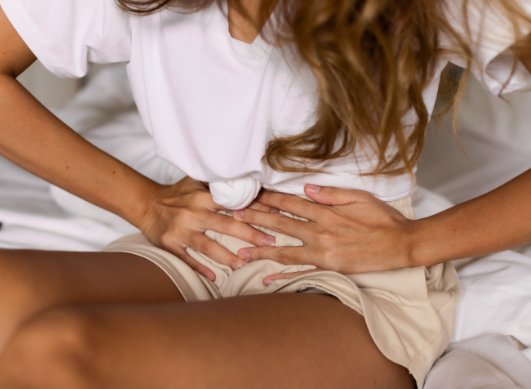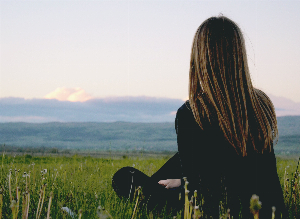Endometriosis destroys women
Published 4 Mar 2019 • By Léa Blaszczynski
Discover the journey of one of our French members, Louise, a 30-year-old woman who has had endometriosis for 19 years.

Do you remember the day you were diagnosed?
I was 20 years old and I had been complaining of severe pain during my period for nine years. I had even taken an overdose of medication after taking ibuprofen during my high school graduation. I went to see a gynaecologist who diagnosed my older sister and everything happened very quickly. I had an MRI and the diagnosis was made. I was both relieved and angry.

How has endometriosis affected your quality of life?
I spent sixteen years putting my life on break at least four days a month. Lying on a bed, taking morphine while drinking tea with a hot water bottle on my stomach. Four days without sleep, without food, without being able to read or talk, just clenching your teeth while waiting for it to pass. It's not a life. Not to mention that endometriosis has completely destroyed my image of women. I had anorexia at 18 because I didn't want to be a woman anymore. Everything that relates to women: sexuality, periods, the body, motherhood is destroyed by endometriosis.
Has it had an impact on your relationships with your loved ones?
Of course it has. Among my friends, there are those who were able to understand, who were empathetic and who were there for me and those who thought I was pretending... Those friends disappeared quite quickly from my life.
And with men, that's yet another problem. Already, a boyfriend has to accept to witness you suffering every month and accept that, perhaps, I will not be able to have children, but in addition, sexual relations can hurt. That's a lot for someone to have to accept in a partner. Some didn't understand, others tried without really succeeding. Anyway, generally speaking, people prefer to love someone who is not sick.
Has it had an impact on your professional life?
Yes, I had to organise my days of rest according to my first two days of menstruation so that I would not have to take two days off every month. After the first two days, I learned to clench my teeth and get on with work. I was lucky to have very understanding teams around me. And paradoxically, I received more compassion from my male colleagues than from my female colleagues...
Have you suffered from gynaecological discomfort?
There is something extremely difficult and shameless about being naked on an iron table in front of a stranger. Today, I have had so many difficult situations that it doesn't matter to me anymore. But I remember that gynecologist at the hospital I saw because I had been having continuous periods for five months. I was 18, terrified, anemic, exhausted. He refused to check me because I was "dirty" and gave me an artificial menopause injection without telling me all the side effects that were going to occur (hot flashes, nausea, dizziness, dryness...). If I could meet him again today...
What are your short and long-term projects?
In the short term, talk more and more about endometriosis so that everyone knows about it. It is absurd that a disease that affects more than one in ten women is so taboo. And in the long run, I hope that a young girl who complains of pain during her period will no longer hear others say, "That's normal!"
Personally, I just hope to have a treatment that stops my period and prevents pain until my menopause, I hope I won't have to go through the "operation" and that if one day I want to have children, it will be possible.
What message would you like to convey to people in the same situation as you?
If you are in pain, fight for care and refuse to accept condescending behaviour. Demand answers and accountability from physicians. No one knows better than you how you feel. If you say you are in pain then you are in pain and that is not normal.
Thank you to Louise for sharing her story. And what impact has endometriosis had on your daily life? How do you manage it?

 Facebook
Facebook Twitter
Twitter




